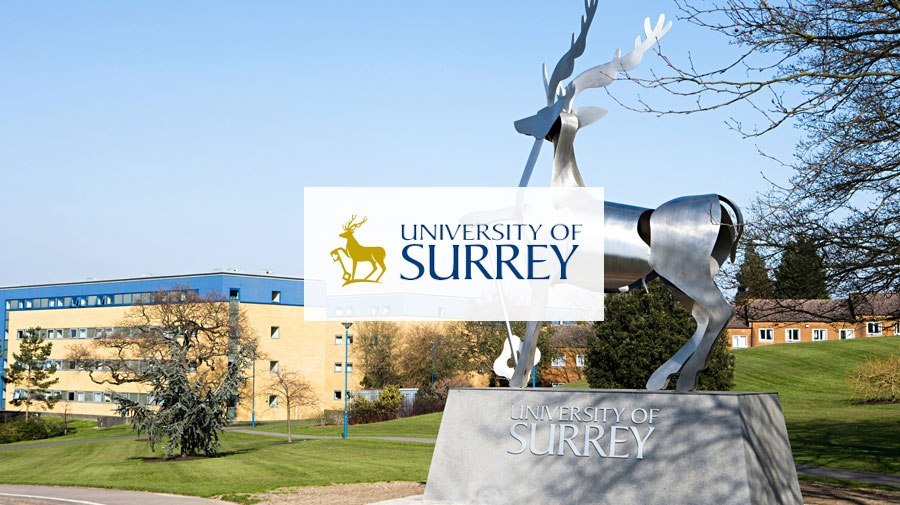Quantum Biology PhD
Why choose this course
Recent research suggests that quantum mechanics appears to play an important role in many biological processes such as photosynthesis, enzyme action and mutation. This emerging and exciting discipline – known as quantum biology – could hold the key to new approaches in solar energy, drugs and diagnostics, or might even improve our understanding of how the brain works. It is also shedding light on the conceptual foundations of quantum theory.
Surrey is uniquely placed to offer a PhD in Quantum Biology. We are home to the Leverhulme Doctoral Training Centre for Quantum Biology – the first centre of its kind in the world. As well as standard biological and physics resources, our PhD students also have access to advanced spectroscopy, ion beam proton irradiation, nanotechnology and mass spectrometry facilities within our Advanced Technology Institute, and additional facilities at our partner institute, the National Physical Laboratory.
The University of Surrey has a strong reputation for PhD training and we are currently home to over 1,000 postgraduate researchers and nearly 450 supervisors, working together across over 170 research areas. The most recent Research Excellence Framework (REF) in 2014 rated 84 per cent of our research output as world-leading or internationally-excellent. We also have an excellent graduate employability record, and the collaborative, interdisciplinary and industry-relevant nature of our research means that you’ll make contacts, gain skills and get practical experience that will give you an edge with employers.
What you will study
Our PhD in Quantum Biology gives you the opportunity to undertake an interdisciplinary research programme in a theoretical or experimental area of the discipline. Depending on the availability of studentships, you could explore a topic such as photosynthesis, molecular mechanisms of mutation, enzymes, olfaction, nanobiotechnology or synthetic biology.
As a PhD student, you will become part of Surrey’s Leverhulme Centre for Doctoral Training in Quantum biology, putting you at the heart of a community of academics, postdoctoral researchers, and guest scientists. In the first year, you will embark on a training programme of interdisciplinary seminars and workshops that are designed to ‘fill in the gaps’ in physics for biologists and in biology for students from a physical science or mathematics background.
You’ll be co-supervised by academics who are experts in their areas of research and will guide you through your PhD. These academics are from a range of departments across the University including Physics, Chemistry, Mathematics, Computing and Biosciences, as well as the Advanced Technology Institute. They will help you define the objectives and scope of your research and help you learn the experimental, theoretical and computing skills you will need to complete your research. You will normally meet with your supervisors every week or every other week.
After your first 12 months you will complete a confirmation report which will be assessed by independent examiners; your PhD will be assessed overall by a written thesis after you have studied for at least three years.
Throughout your studies you will have regular opportunities to meet other PhD students, academics and staff at our informal postgraduate research forum meetings, and to get involved in socials and other events.
Research support
Your professional development is supported by Surrey’s Doctoral College which provides training in essential skills through its Researcher Development Programme of workshops, mentoring and coaching. A dedicated postgraduate Careers and Employability team will help you prepare for a successful career after you complete your Ph.D.
Research themes
- Photosynthesis
- Molecular mechanisms of mutation
- Enzymes
- Olfaction
- Nanobiotechnology
- Synthetic biology
- Magnetoreception
- Neurobiology
- The role of noise in quantum biology
- Open quantum systems
- Quantum information theory
- Quantum computing.
Intakes
- Oct
Application Processing Time in Days: 20
Minimum English Language Requirements
| English Level Description | IELTS (1.0 -9.0) | TOEFL IBT (0-120) | TOEFL CBT (0-300) | PTE (10-90) | |
|---|---|---|---|---|---|
| Expert | 9 | 120 | 297-300 | 86-90 | |
| Very Good | 8.5 | 115-119 | 280-293 | 83-86 | |
| Very Good | 8 | 110-114 | 270-280 | 79-83 | |
| Good | 7.5 | 102-109 | 253-267 | 73-79 | |
| Good | 7 | 94-101 | 240-253 | 65-73 | |
| Competent | 6.5 | 79-93 | 213-233 | 58-65 | |
| Competent | 6 | 60-78 | 170-210 | 50-58 | |
| Modest | 5.5 | 46-59 | 133-210 | 43-50 | |
| Modest | 5 | 35-45 | 107-133 | 36-43 | |
| Limited | 4 | 32-34 | 97-103 | 30-36 | |
| Extremely Limited | < 4 | < 31 | < 93 | < 30 |
Admission Requirement / Eligibility Criteria
Applicants are expected to hold a first or upper-second class degree in a relevant discipline (or equivalent overseas qualification), or a lower second plus a good Masters degree (distinction normally required).
- Course Type: Full Time
- Course Level: Doctoral Degree/PhD
- Duration: 04 Year
-
Total Tuition Fee:
88000 GBP
Annual Cost of Living: 9207 GBP
Application Fee: N/A

